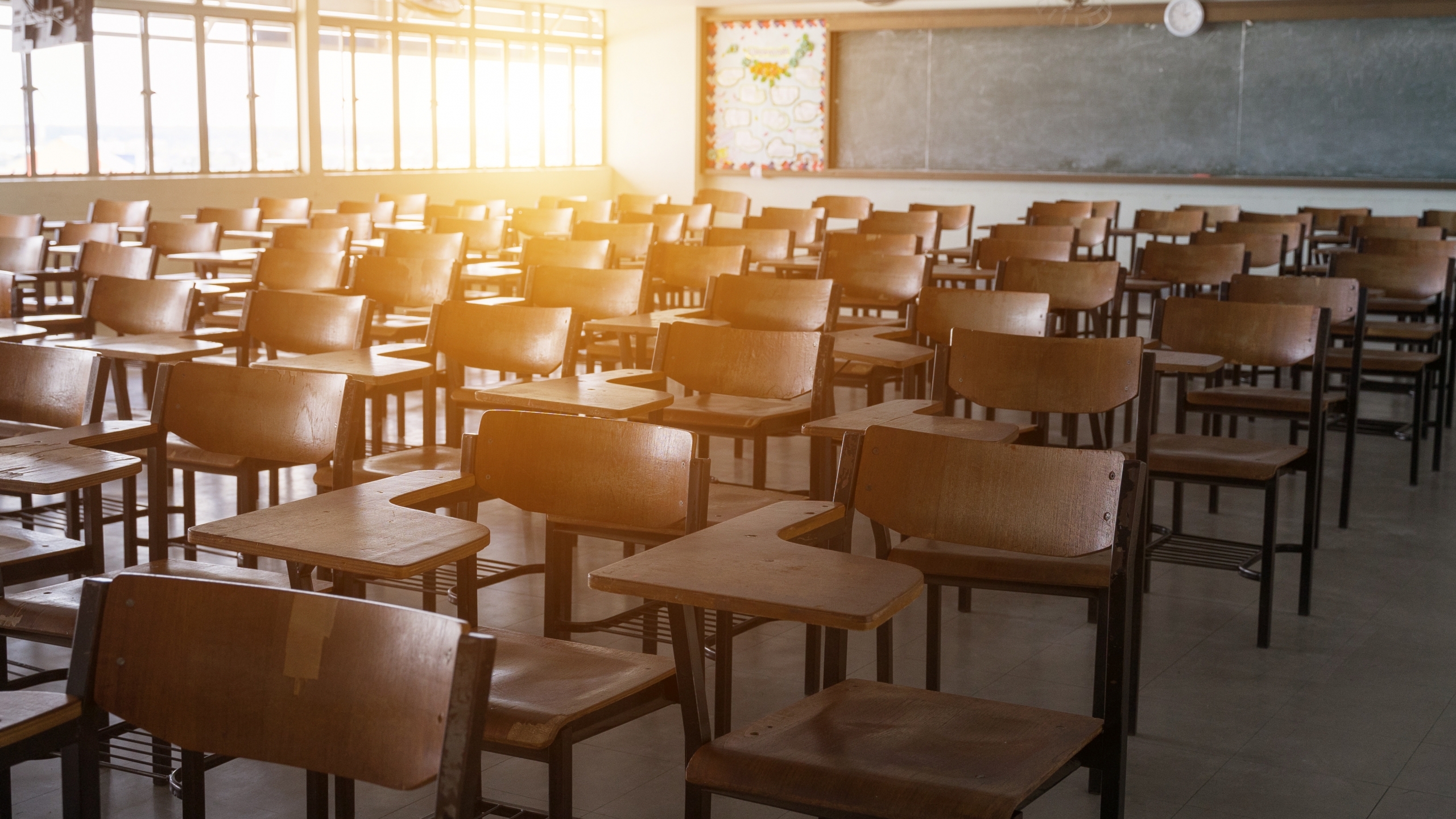The Alabama Senate on Tuesday passed a bill that would postpone implementation of a plan to require children to pass a third-grade competency test before being admitted to fourth grade. Senate Bill 94 is sponsored by state Sen. Rodger Smitherman, D-Birmingham.
Under a plan passed by the legislature in 2019, students unable to show proficiency on third-grade level skills would be forced to repeat the third grade. This concept was pioneered by the state of Mississippi. Public school children in Mississippi consistently show far greater academic performance than do children in Alabama public schools.
Under current law, current second graders would need to test at grade level when they take end-of-year testing in 2022. Failure to perform acceptably would mean that those children would repeat third grade in the 2022-2023 school year and would be a year behind their peer group, finishing high school in the class of 2032, assuming that they don’t fail another grade along the way.
Sen. Arthur Orr, R-Decatur, strongly opposed the Smitherman bill.
“This bill gives me great concern,” Orr said. “One of the things I learned is that statistics show us that students who cannot read at third-grade level by the end of third grade are four times more likely never to master reading, not by twelfth grade, but never in their lifetimes.”
“We could lose a whole class or cohort of students,” Orr said. “They just go off and they never get the program because of us.
“The Alabama Literacy Act is something we passed in 2019,” Orr said. “I know the literacy bill has caused chaos in some schools.”
“Millions and millions of dollars are going to be coming down for summer school and after-school programs and most of that is coming for reading and math,” Orr said. “We will have a whole year to get them caught up. We are talking about second graders now.”
“You have got to have the one-on-one instruction,” Smitherman said. “Right now in our COVID scenario, the worst scenario is that everything is virtual. The only people who are there with these little people are grandmother who is maybe 90 years old or a cousin, I call him Rayray, who is just there to house sit and make sure everything is ok.”
“If we don’t delay this thing, maybe 30 to 40, maybe 50 percent, of our third graders is going to be held back,” Smitherman predicted.
Smitherman said he met with the Jefferson County superintendent and the Birmingham city superintendents.
“We know these students, I am talking about a lot of these students, are not going to pass,” Smitherman said. “This does not help them if they did not get the proper training.”
“If I am a second grader now what happens to me? Do I get passed on?” Orr asked.
“Yes, this is about trying to save our kids,” Smitherman said. “I have heard from everyone on this. I have talked to the Hoover school system. I have talked with Homewood.”
“You and I do not know what the world is going to look like in August,” Orr said. “With all the money coming in I am hoping that all of the schools will be doing summer school. There is a path for our current system.”
“We are gambling on their lives,” Smitherman said of the children held back in the third grade. “Their whole lives are destroyed.”
Orr said, “They’re being helped.”
Smitherman replied, “they will be getting help in the fourth, fifth, and sixth grades.”
“Does it make any sense to wait until we come in in January?” Orr said. “Does that make more sense.”
“There is no assurance that it will pass both chambers next year,” Smitherman said. “Everybody is not going to summer school. It is nice to think that the responsible parent is going to send them to summer school; but that is not the cure all for all of these students that we are talking about.”
“We should not sacrifice these kids for a principle,” Smitherman said. “Flunking these kids will increase the dropouts. The reality is that is what is going to happen.”
“If we are just going to push them through, I look at the statistics and they say that this cohort is four times more likely to never learn to read,” Orr said. “They get to the 8th, 9th 10th11th and 12th grade and they can’t read well. Do we draw the hard line now?”
“I am not for flunking anybody in the third grade,” Smitherman said. “This is not about a bill. This is about the children.”
“I don’t like the bill that is coming up from the House that if they don’t do K they can’t go to first grade,” Smitherman said. “Now we got little five-year olds. We want to hold them. Not everybody has the resources you or I got. It is called being poor. These people ain’t got no nannies.”
“Do you think we set them up for failure when we move them along from grade to grade without ever learning to read?” Orr said. “That is failing them worse than holding them back a year.”
Sen. Larry Stutts, R-Sheffield, said, “The problem I have with this is if we can’t meet the standards we are going to break the standard. I have had an elementary teacher tell me that you spend grades first through three learning to read and every grade beyond that reading to learn. If they can’t read properly, they are going to get further and further behind.”
“I think we are going to have a tremendous increase in dropout rate,” Stutts predicted. “If I was an eleventh graders who was having trouble with school and I spent a year out of school I am probably not going back.”
“If we move children along we are setting them up to fail,” Stutts said.
“I agree with you in a regular situation,” Smitherman said. “But COVID changed that.”
Stutts said, “The education system made the decision to make people learn online. We have sent hundreds of children home for absolutely no reason.”
“If you test these kids now they are going to flunk,” Smitherman said. “The vast majority do not have the means that we do. We need to come out of our glass houses and look around and I am talking about the majority.”
“I want them to succeed; but passing them on is not going to help them succeed,” Stutts said.
Sen. Del Marsh, R-Anniston, said, “We don’t want to pass them on because it is setting them up to fail.”
“The very people who are behind the scenes pushing this bill, and I know who there are, I am trying to get this group of people to understand the importance of this piece of legislation I am trying to get that deals with public charter schools.” Marsh said.
“I want to get some assurance that we can help a group of people who are being affected disproportionately,” Marsh said.
“I don’t like taking this bill to get something else accomplished,” Smitherman replied to Marsh’s request. “If people don’t care about these kids, then so be it. I am here because I care about these kids.”
“We are gearing up to test kids that have had a year to a year and a half of no consistent in person instruction,” Smitherman said. “With the two new strains that are spreading, We will have COVID-19 with us for the next year or two. Maybe it is COVID-20 or COVID-21.”
“Most of your urban or rural poor kids are not going to have a ghost of a chance,” Smitherman said. “The have nots are going to held back and the haves will move on to whatever they do in life.”
Marsh replied, “Some will catch up, others will not. It is a sad situation.”
“All this bill does is delay when this test takes place,” Sen. Vivian Figures said. “I wholeheartedly agree with you. This test was put in place before we were dealing with COVID. I have heard that some kids have not even opened a computer or a book since before all of this happened. It makes no sense to me to go forward with this.”
“If all of our schools are not funded equally and all of our students are not treated equally how can we give them a test judging them equally?” Figures said.
The Senate passed an amendment from Dan Roberts, R-Mountain Brooks that reduced the delay from 2024 to 2025 to 2023 to 2024.
“We will have more information when we come back in January,” Roberts said.
The Senate passed SB94 on a 23 to 9 vote. It now goes to the Alabama House of Representatives for their consideration.
Tuesday was day 22 of the 2021 Alabama Legislative Session.
















































